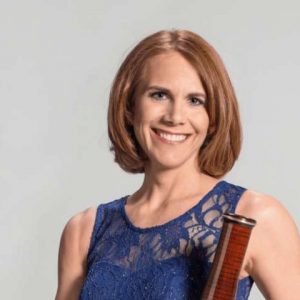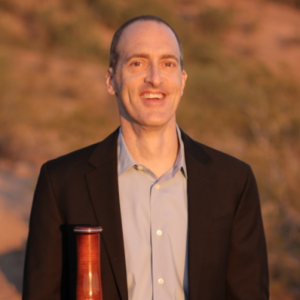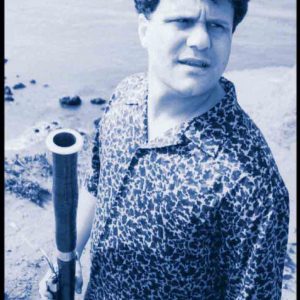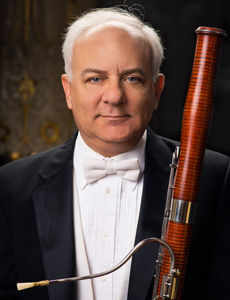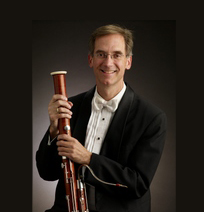 Dr. Bellamy’s studio relies upon establishing a symbiotic relationship between student and teacher, which creates not only a sense of trust and engagement, but also one of responsibility, with each holding the other accountable for different parts of the learning process. With developing the ability to self-teach as an overarching goal for private study, well-constructed trajectories based on the below four pillars of applied music instruction guide students down a path of holistic development.
Dr. Bellamy’s studio relies upon establishing a symbiotic relationship between student and teacher, which creates not only a sense of trust and engagement, but also one of responsibility, with each holding the other accountable for different parts of the learning process. With developing the ability to self-teach as an overarching goal for private study, well-constructed trajectories based on the below four pillars of applied music instruction guide students down a path of holistic development.
In the modern classical music world, instrumentalists with any career trajectory must be well versed in each of the four main pillars covered in applied bassoon study at CSU:
- Solo Performance: Bassoonists at CSU receive weekly individual private lessons, group studio and masterclass, and a reed class. Applied lessons incorporate solo repertoire and standard audition excerpts from the late Renaissance to contemporary style eras, connecting each to the historical significance and relation to the development of the instrument from its earliest predecessors. Weekly masterclasses include mock auditions, peer reviewed performances, special topics discussions, and fundamentals classes, and reed class addresses the variables, processes, and considerations for preparing and adjusting bassoon reeds from the moment the bamboo cane is cut to the finished, stage-ready product. Students have access to a reed workshop room stocked with gouger, profiler, shapers, and finishing supplies for their reed making needs.
- Ensemble Performance: CSU bassoonists are assigned to full orchestra, wind band, staged performance ensembles, and chamber groups based on audition, preparation, and interest each semester. Both conducted and unconducted ensemble experiences are critical to a well-rounded musical development, and the bassoon studio at CSU is actively involved in all performance opportunities at the university, as well as throughout the region.
- Pedagogy: Bassoonists at CSU engage in real-life service learning via peer taught masterclasses with fellow studio members and local school outreach programs, coordinated by Dr. Bellamy. All fundamentals, etudes, and repertoire are explored through both a performative lens and a pedagogical one to understand how best to sequence instruction for future students or develop their own most efficient practice techniques.
- Innovation: Students are encouraged to develop their own personal brand of performance and teaching style, both through pursuit of extra- and cross-curricular research and performance, as well as through engagement in the ever-growing fields of arts entrepreneurship, web development, and social media management. This may take the form of joint research theses with departments across campus, new digital performances in the rising wave of virtual music engagement, bassoon performance in non-traditional styles or venues, and many more.
Dr. Bellamy wholeheartedly embraces the responsibility of fostering a curious and supportive learning community with ideals that extend beyond our studio doors to the college, community, and global environments. Recent students from her studio are innovating within their professions as public school band directors, collaborative performers, instrument repair experts, and performing arts managers, as well as medical residents, literary fiction editors and authors, mechanical engineers, chemists, neuroscientists, and museum curators. These incredible alumni excel in their careers all while embracing the role music has played and continues to play in their intellect and humanity.
In addition to study with Dr. Bellamy, CSU bassoonists enjoy the plethora of opportunities in Northern Colorado and the metro-Denver area, as well as the internationally renowned guest artists appearing as annual clinicians for BassoonaRAMa, one of the region’s longest-running bassoon workshops, and dedicated instruction from academic professors, ensemble directors, and multitalented faculty of the School of Music, Theatre, and Dance.
CSU bassoonists will depart this program as well-developed professional musicians prepared to shape the future of their lives, the communities they touch as artists and humans, and their expressive world as a whole.
Study With
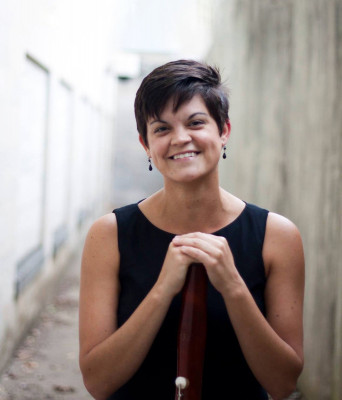
Cayla Bellamy
- Associate Professor of Music, Bassoon
- Coordinator of Woodwinds
Audition Requirements
Undergraduate Audition
Fundamentals:
- All major scales and arpeggios, at a tempo of your choosing
- Chromatic scale, indicating your full range, at a tempo of your choosing
One concert etude selected from:
- Jancourt: 26 Melodic Etudes
- Milde: Concert Studies
- Weissenborn: 50 Advanced Studies
One solo composition of your choice
Include selections to demonstrate both lyrical (slow) and technical (fast) playing.
Suggested solos at or above approximate level of:
- Bourdeau: Premier Solo
- Brandon: Colored Stones
- Mozart: Sonata, K. 292 or Concerto, K. 191
- Hindemith: Sonate
- Telemann: Sonata in F minor
Undergraduate Transfer Audition
If you are interested in transferring for your senior undergraduate year only, please contact me so we can discuss the specifics of your situation and expectations for study.
Fundamentals:
- All major and minor scales and arpeggios
- Chromatic scale, indicating your full range
One concert etude selected from:
- Milde: Concert Studies
- Weissenborn: 50 Advanced Studies
- Piard: 90 Etudes or 16 Characteristic Studies
One solo composition of your choice, at or above the approximate level of:
- Fasch: Sonata in CM
- Siqueira: Drei Etuden
- Mozart: Concerto, K. 191
- Villa Lobos: Ciranda Das Sete Notas
- Weber: Concerto in F Major
Two (2) orchestral excerpts of your choice
Graduate Audition
If you are interested in graduate study, please be sure to contact me directly to schedule a talk and free sample lesson (in person or virtual) as well as your performance audition.
Fundamentals:
- All major and minor scales and arpeggios
- Chromatic scale to treble E
One concert etude selected from:
- Milde: Concert Studies
- Piard: 90 Etudes or 16 Characteristic Studies


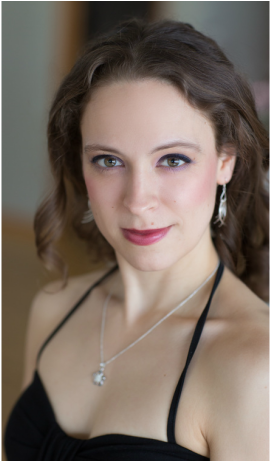
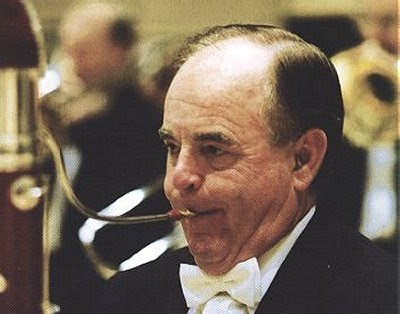
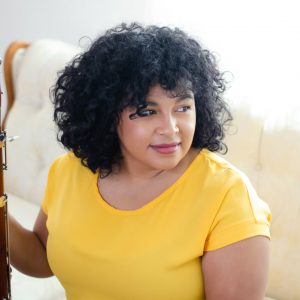
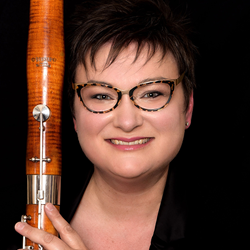 Dr. Leigh Muñoz
Dr. Leigh Muñoz